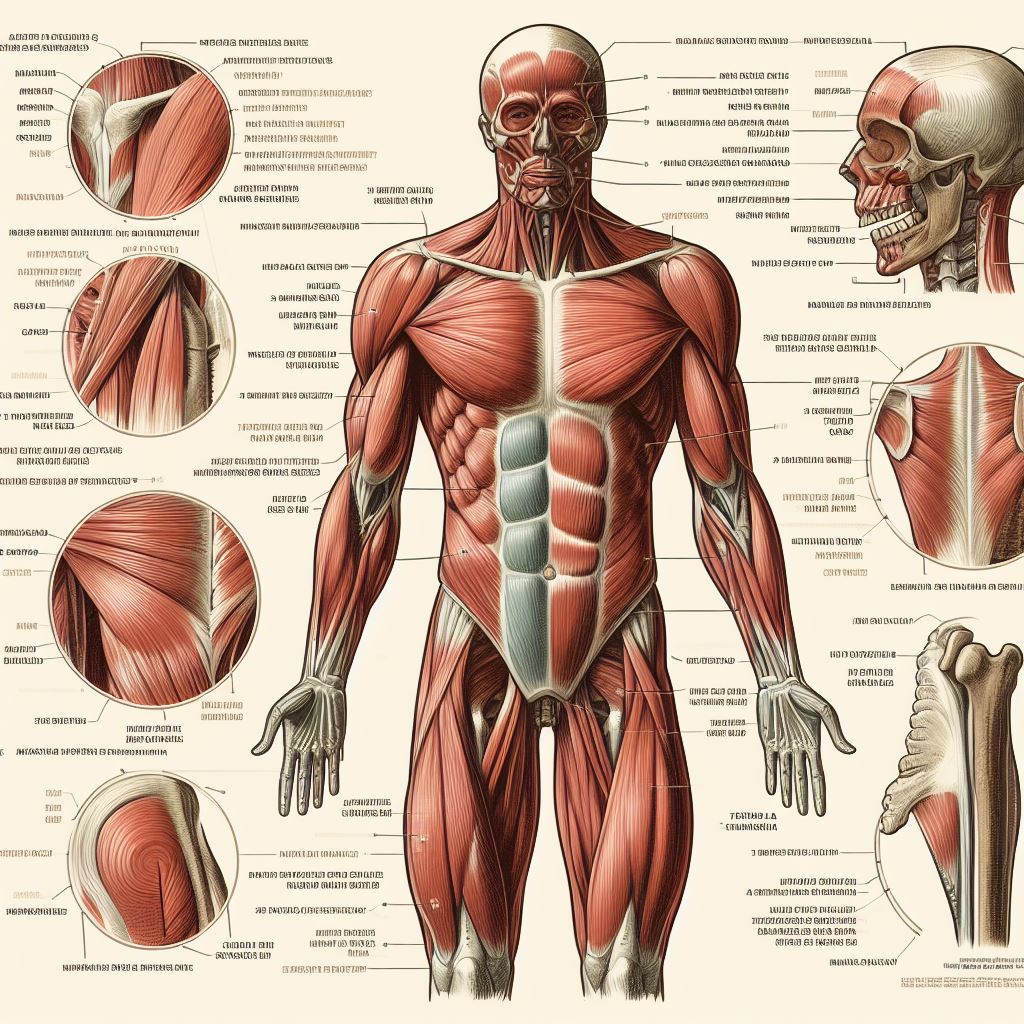
Introduction to the Muscular System
The human body is a complex and intricate system, with each part playing a crucial role in maintaining overall health and functionality. One of the most important components of this system is the muscular system. Composed of more than 600 muscles, the muscular system is responsible for a range of vital tasks, from enabling movement to maintaining posture and circulating blood throughout the body. However, one of its primary roles is to create the force needed to move the bones, a task that is fundamental to our ability to interact with the world around us.
The muscular system works in conjunction with the skeletal system, with muscles and bones interacting through a series of contractions and relaxations that result in movement. This movement is not just limited to walking, running, or lifting objects. It also includes the involuntary movements that occur within our bodies, such as the beating of the heart or the movement of food through the digestive tract.
Understanding the muscular system and its functions is not only important for those studying biology or medicine, but also for anyone interested in improving their physical health, fitness, or athletic performance. By gaining a deeper knowledge of how muscles work, how they interact with the skeletal system, and how they contribute to overall body function, we can better understand how to take care of our bodies and optimize our physical capabilities.
In this article, we will delve into the intricacies of the muscular system, exploring its structure, function, and the critical role it plays in movement. We will also discuss some common disorders of the muscular system and provide practical recommendations for maintaining muscular health.
Exploring the Muscular System
The muscular system is a complex network that plays a crucial role in our everyday lives. It is composed of three types of muscles: skeletal, cardiac, and smooth muscles, each with its unique structure and function.
Types of Muscles
Skeletal muscles are the most abundant type of muscles in our body. They are attached to the bones and are responsible for all voluntary movements. When a skeletal muscle contracts, it pulls on a bone to produce movement.
Cardiac muscles, as the name implies, are found in the heart. They are responsible for the contraction and relaxation of the heart, which pumps blood throughout the body.
Smooth muscles are found in various organs and structures such as the esophagus, stomach, intestines, bronchi, uterus, urethra, blood vessels, and the iris of the eye. These muscles ensure the proper functioning of these organs.
Creating Force to Move Bones
The primary task of the muscular system is to create the force necessary to move the bones. This is achieved through a process called muscle contraction. When a muscle contracts, it shortens, pulling on the tendons that are attached to the bones. This pulling force is what causes the bone to move.
The process of muscle contraction is a complex one, involving a series of biochemical reactions triggered by signals from the nervous system. When a signal reaches a muscle fiber, it stimulates the release of calcium ions, which in turn trigger the sliding of protein filaments within the muscle cells. This sliding action is what causes the muscle to contract and generate force.
Common Disorders of the Muscular System
There are several disorders that can affect the muscular system, ranging from common conditions like muscle strains and sprains to more serious diseases like muscular dystrophy and myasthenia gravis. These conditions can impair the muscular system’s ability to generate force and move the bones, leading to symptoms such as weakness, pain, and reduced mobility.
Conclusions
The muscular system is a remarkable network of tissues that plays a crucial role in our ability to move and interact with the world. By generating force to move the bones, the muscles enable us to perform a wide range of activities, from the most basic movements like walking and eating to more complex tasks like playing a musical instrument or participating in sports. Understanding the workings of this system can provide valuable insights into our physical health and capabilities, and can guide us in taking better care of our bodies.
Practical Recommendations for Maintaining Muscular Health
Understanding the muscular system and its role in our bodies is the first step towards maintaining and improving its health. Here are some practical recommendations to help you take care of your muscular system:
Maintain a Balanced Diet
Nutrition plays a crucial role in muscle health. Consuming a balanced diet rich in protein, healthy fats, and complex carbohydrates can provide the nutrients necessary for muscle growth, repair, and function. Additionally, certain minerals and vitamins, such as calcium and vitamin D, are essential for muscle contraction and strength.
Regular Exercise
Physical activity is vital for maintaining muscular health. Regular exercise, especially strength training and resistance exercises, can help build muscle mass and strength. It also improves muscle flexibility and endurance. Furthermore, exercise enhances blood circulation, ensuring that your muscles receive the oxygen and nutrients they need to function effectively.
Stay Hydrated
Hydration is often overlooked when it comes to muscle health. However, water is essential for various bodily functions, including those of the muscles. Dehydration can lead to muscle cramps and fatigue, so it’s important to drink enough water, especially during and after exercise.
Get Adequate Rest
Rest is just as important as exercise in maintaining muscular health. During sleep, your body repairs and rebuilds damaged muscle tissues, promoting muscle growth and recovery. Therefore, ensuring you get enough sleep and taking rest days between intense workout sessions can help maintain muscle health and function.
Regular Check-ups
Regular medical check-ups can help detect any potential issues with your muscular system early on. If you experience persistent muscle pain, weakness, or any other unusual symptoms, it’s important to seek medical attention promptly.
By following these recommendations, you can help ensure that your muscular system remains healthy and functions optimally, allowing you to enjoy a high quality of life and perform your daily activities with ease.





